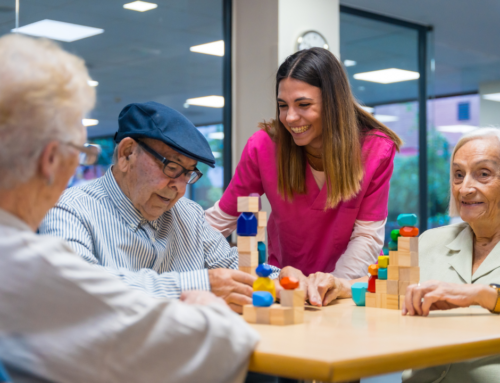Share This Story!
Understanding Nutritional Needs For Seniors
Eating healthy should always be top of mind for a person of any age. As people age, however, nutritional requirements change. Aging can lead to vitamin deficiencies, health conditions, and decreased quality of life. Proper nutrition can help prevent vitamin deficiency and reduce the severity and speed of age-related changes.
Aging changes nutritional needs
Aging can cause wrinkles, gray hair, stiffening of the blood vessels, weaker bones, muscle loss, thinner skin, and less stomach acid. Seniors can suffer from atrophic gastritis, which results in chronic inflammation that damages the cells that produce stomach acid. Less stomach acid means fewer of the vitamins and nutrients are being absorbed.
Older individuals also require fewer calories, but still, need a high nutrition level. Eating whole foods and supplements can solve the problem of eating more nutrients in fewer calories. Aging can also affect a person’s ability to perceive hunger or thirst, which could lead to dehydration or weight fluctuations.
Fewer calories, high nutrient intake
A person’s ideal caloric intake depends on age, muscle mass, height, weight, and more factors. Elderly individuals may need fewer calories to maintain a healthy weight since seniors often aren’t as agile and active. Eating whole foods such as vegetables, fish, and fruits can help sustain weight levels and provide the right amount of nutrients to an aging population.
Protein- and fiber-rich diet
Eating a diet high in protein could help stave off some of the dramatic muscle loss that occurs after the age of 30. Fiber can help relieve constipation, which is a common health issue for seniors who aren’t active and take medications with constipating side effects. Eating whole foods or protein and fiber supplements can help seniors stay fit and healthy.
Calcium and vitamin D
Calcium and vitamin D are a dynamic duo of nutrients that help people retain strong and healthy bones and prevent bone fractures. Calcium helps produce bone, while vitamin D helps the body absorb calcium from foods. Dairy and leafy greens are excellent sources of calcium. Vitamin D can be found in fish such as salmon.
Vitamin B12
Vitamin B12, also called cobalamin, is responsible for producing red blood cells and maintaining proper brain function. As stomach acids break down in aging individuals, vitamin B12 absorption is affected. Vitamin B12 can be found in animal foods such as dairy, eggs, meat, and fish. Supplements can help elderly individuals with a vegetarian or vegan diet.
And the list continues
The list of nutritional requirements becomes more pressing as people age. Potassium deficiencies can increase the risk of high blood pressure, kidney stones, cardiovascular problems, and osteoporosis. Magnesium deficiency can reduce vitamin absorption due to decreased gut health. Iron deficiencies can lead to anemia. Omega-3 fatty acid deficiencies can lead to worsened cardiovascular health. Heart disease is a significant concern among the elderly community. Vitamin deficiencies can be reduced by eating fruits, vegetables, lean meats, and fish.
Staying hydrated and well-fed
Weak thirst receptors in the brain can lead to dehydration, which affects a person’s nutritional intake. Decreased appetite can be caused by hormone changes. Addressing nutritional issues with age can help prevent any significant damage and improve a person’s overall quality of life. For more information about understanding nutrition, speak with a dietitian or healthcare provider.





